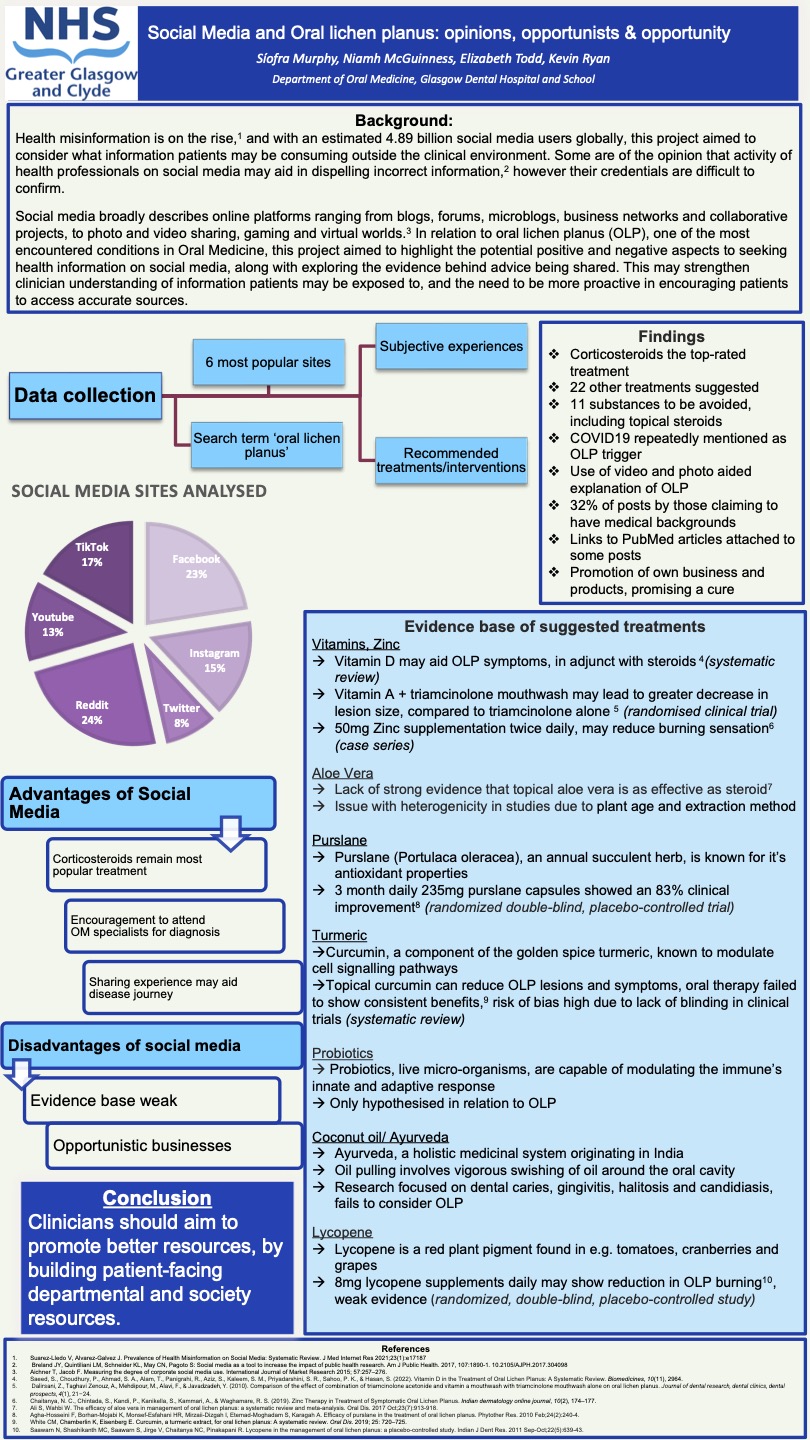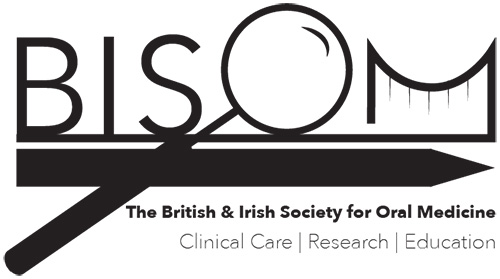Social Media and Oral lichen planus: opinions, opportunists & opportunity
OR7
Síofra Murphy
Síofra Murphy, Niamh McGuinness, Elizabeth Todd, Kevin Ryan
Title: Social Media and Oral lichen planus: opinions, opportunists & opportunity.
Background:
With health misinformation on the rise and an estimated 4.89 billion social media users globally, this project aimed to consider what patients are consuming outside the clinical environment, specifically in relation to oral lichen planus (OLP), one of the most encountered conditions in Oral Medicine. The purpose of this was to highlight the potential positive and negative aspects to seeking health information on social media, along with exploring the evidence behind advice being shared. Overall, this can strengthen clinician understanding of information patients may be exposed to, and the need to be more proactive in encouraging patients to access accurate sources.
Method:
Retrospective analysis of the top social media posts across the six most popular social media platforms- Facebook, Instagram, TikTok, YouTube, X and Reddit, using the search ‘oral lichen planus’. The subjective experiences and narratives of those posting were established, along with their backgrounds. Recommended interventions and treatments were recorded and the evidence base for suggested treatment modalities subsequently assessed, and a grounded theory approach used to draw conclusions.
Results:
71 social media posts were analysed. 32% of posts were by those claiming to have medical backgrounds, with some promoting their own business and products. Corticosteroids remained the top-rated treatment, with 22 other treatments suggested with varying degrees of reported evidence in the literature. 11 substances were reported to be avoided, which in fact also included topical steroids. COVID19 was repeatedly mentioned as an OLP trigger.
Conclusions:
The community aspect of turning to social media may be a key feature in coping with chronic disease, however the evidence base of many treatments requires further studies. Patients should be made aware of the dangers of health misinformation, and clinicians the importance of provision of accurate information sources.

